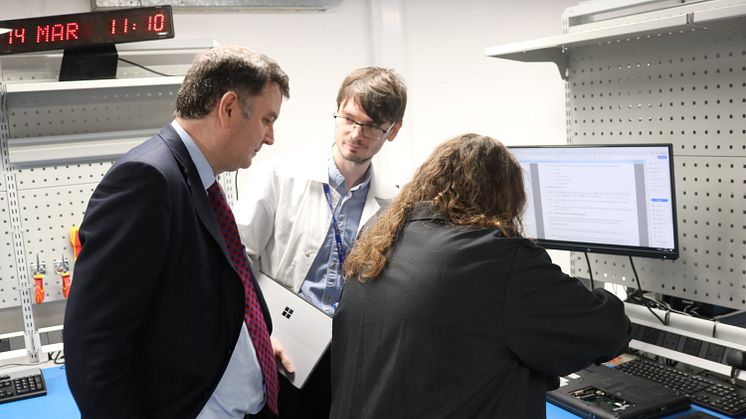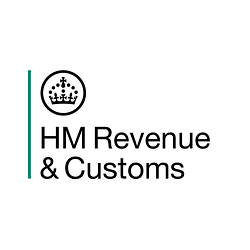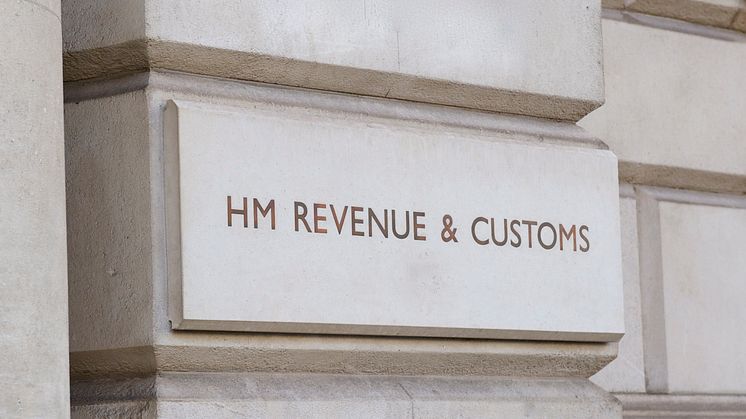
Press release -
Financial Secretary meets HMRC’s elite crime fighters
The Financial Secretary to the Treasury, Mel Stride MP, has underscored his commitment for the UK to lead the fight against organised tax fraud and evasion in a visit to HMRC’s fraud investigation and intelligence teams on 14 March.
At HMRC’s historic law enforcement headquarters, on the bank of the River Thames, the minister met with some of the 4,500 officers making it their mission to ensure that no one is beyond the reach of the law. No matter how complex the crime, or wealthy the perpetrator, these dedicated specialist teams are combatting offshore evasion, illicit international smuggling, exports of controlled weapons , and tax fraud in all its guises, in order to protect public revenues and ensure a level playing field for businesses and individuals. HMRC has increased its investigations into the country’s wealthiest offenders six-fold in the last three years.
Taking on these complex cases in increasingly numbers requires a unique skill set. In a world first, HMRC’s Fraud Investigation Service has brought civil and criminal tax investigation capabilities together, as well as forensic accountants, insolvency practitioners and data and technology experts. This work is undertaken by some of HMRC’s most able and experienced analysts and investigators and, last year alone, their work resulted in:
- over 1000 individuals being charged for criminal offences
- 835 people being convicted of fraud related offences
- almost 650 years’ worth of custodial sentences being handed out
- and over £5bn revenue protected
To stay one step ahead of the criminals HMRC’s focus is increasingly working across government, as a key player in the new National Economic Crime Centre, and internationally. With a global network of intelligence officers and a dedicated repatriation team HMRC is leading efforts to return convicted fraudsters who have fled overseas. HMRC is also one of the five members of Joint Chiefs of Global Tax Enforcement (J5), a new operational alliance with Australia, the USA, Netherlands and Canada that is dedicated to tackling international tax crime and money laundering and to taking on those who enable and facilitate these crimes.
The visit came on the day that HMRC updating its offshore tax compliance strategy as part of the Spring Statement. The refreshed strategy sets new objectives to use data from international collaboration to help taxpayers get their tax right and respond appropriately to those who don’t pay what they owe. This builds on the UK’s substantial progress in tackling offshore non-compliance, including offshore tax avoidance and evasion, since the last strategy in 2014.
Commending the team and the role they play in protecting the public purse, Mr Stride said:
“The work you do is vitally important, it makes our country a fairer place to live and do business and it provides the revenue for vital public services.
“I want the UK to remain at the forefront of fighting serious organised crime, and want us to be the global leader. HMRC’s fraud investigators show how with cutting edge technology and the right staff, we can tackle global tax fraud, setting an international example to other countries in this crusade”.
“I have been impressed by the dedication and professionalism of everyone I have met today and I believe in your ability to tackle the most complex and egregious cases of serious fraud.”

During the visit, the minister was walked through live investigations which have protected vital public funds, and heard about how HMRC is using new capabilities such as cutting edge digital forensics to fight back against targeted attacks on the tax system.
Simon York, Director of the Fraud Investigation Service, said:
“We set up the Fraud Investigation Service to ensure that no one was beyond our reach and to show that there are no criminals too rich or too clever to face justice. Delivering on this promise is exactly what we are doing, having increased six-fold the number of investigations into the UK’s wealthiest tax evaders over the last three years.
"I was pleased to be able to showcase to the minister the talent and skill of those who work tirelessly on this challenging and important work and who, by so doing, protect vital public funding and uphold the integrity of the UK tax system.”
Notes to editors
- More information about HMRC’s criminal prosecution policy can be found online.
- The UK leads the world in the fight against illicit finance, according to a Financial Action Taskforce report on money laundering. More information can also be found here.
- The Chancellor and Home Secretary launched the new taskforce to tackle economic crime in January, of which HMRC will be a part.
- Since the government’s previous offshore evasion strategy ’No Safe Havens’ was published in 2014, the UK has introduced tough new criminal and civil sanctions in successive Finance Acts from 2015 to tackle offshore tax evasion, helping raise over £2.9 billion since 2010 from tackling offshore non-compliance.
- The UK has also played a leading role in introducing the Common Reporting Standard, under which over 100 jurisdictions have committed to automatically exchange financial account information between tax authorities, making it harder for people to hide money abroad. In 2018, the UK received reports about the offshore financial interests of around 3 million UK resident individuals, or the entities they control.
- Based on HMRC analysis of offshore risk, the strategy sets the direction for the next phase of the government’s response to existing and emerging offshore risk. This strategy brings together HMRC’s response to offshore non-compliance, including evasion and avoidance.
- HMRC’s Fraud Investigation Service (FIS) was formed in 2016, bringing together two predecessor directorates in order to be able to combine civil and criminal investigation capabilities. Combining capability in this way is a world first and helps ensure we can deploy the most impactful interventions against serious fraud and ensure no one is beyond our reach.
- The work of FIS is supported by the Risk and Intelligence Service (RIS), HMRC’s data and intelligence analysis and risking directorate. RIS collects and analyses one of the largest and most diverse collections of data and intelligence in the world, and uses this analysis to understand and manage risks to the tax system.
- Since 2010, our criminal investigations have prevented the loss of over £13.5 billion and resulted in more than 5,000 individuals being criminally convicted
- Recent examples of the types of cases investigated by the team can be found here.
- FIS has been described as the ‘Premier League’ of HMRC investigators by accountancy firm Mazars.
Related links
- WHO ARE THE HMRC FRAUD INVESTIGATIONS SERVICE UNIT AND WHAT DO THEY DO?
- Tax chiefs unite to tackle international tax crime
- No Safe Havens 2019
- HMRC's criminal investigation policy
- The United Kingdom's measures to combat money laundering and terrorist financing
- UK takes top spot in fight against dirty money
- New taskforce to tackle economic crime
Topics
Categories
Issued by HM Revenue & Customs Press Office
HM Revenue & Customs (HMRC) is the UK’s tax authority.
HMRC is responsible for making sure that the money is available to fund the UK’s public services and for helping families and individuals with targeted financial support.


